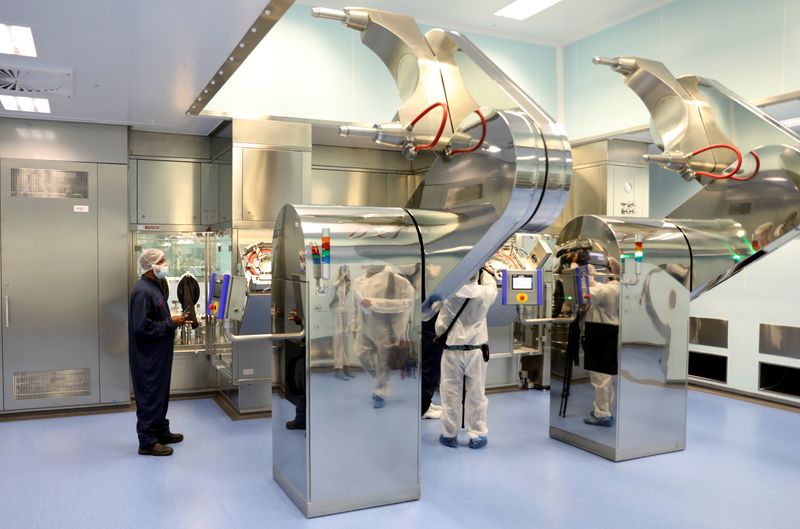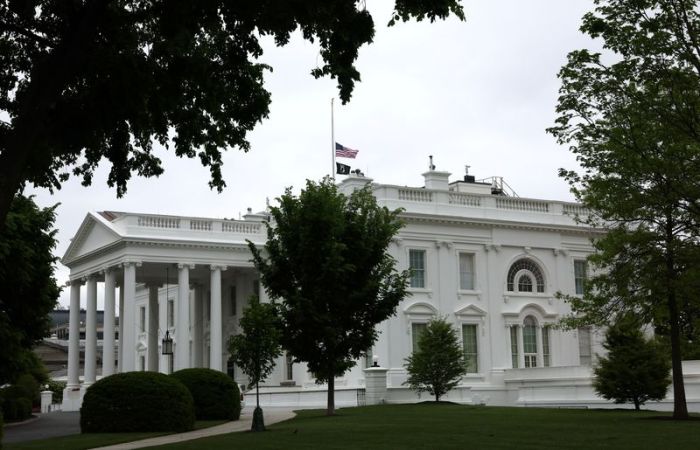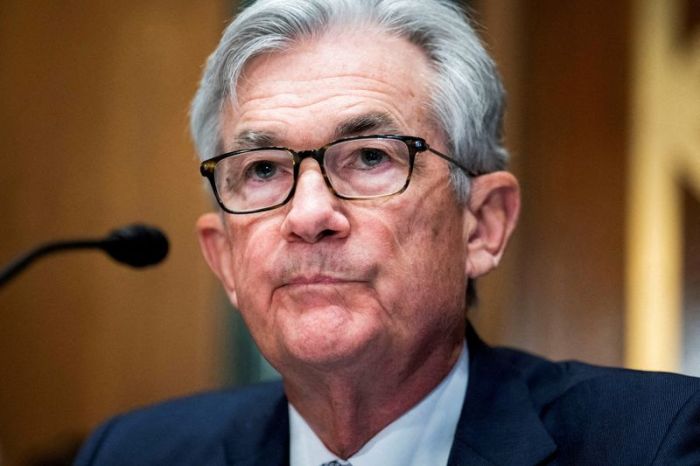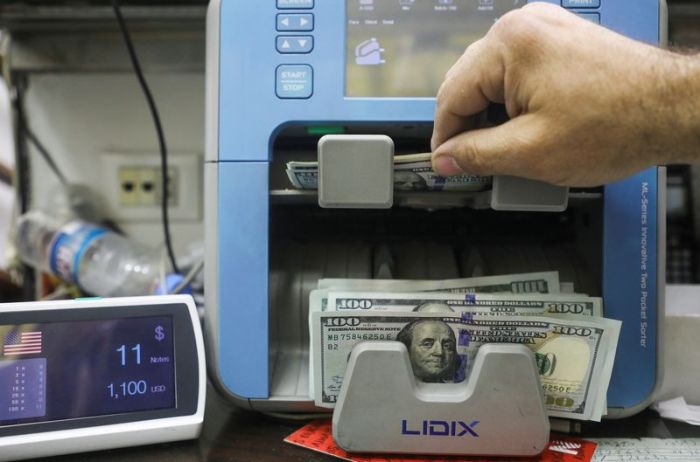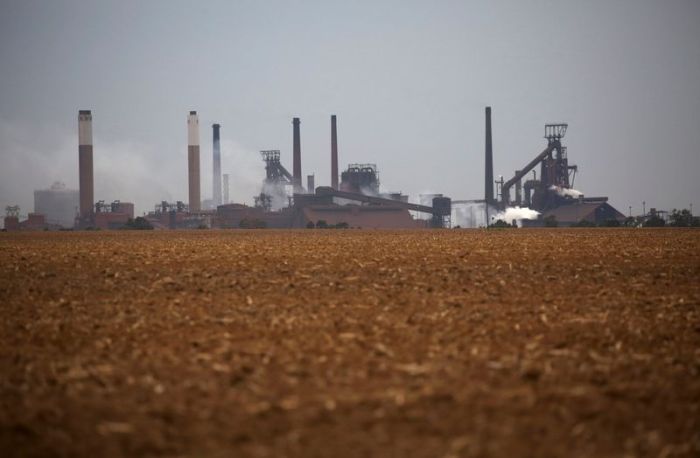JOHANNESBURG (Reuters) -International agencies and charitable foundations providing COVID-19 vaccines for Africa should order African-made vaccines, South African President Cyril Ramaphosa told a global COVID-19 summit on Thursday.
Ramaphosa’s comments came after South African pharmaceutical company Aspen said it could slash its capacity to produce a COVID vaccine manufactured with drug substance from Johnson & Johnson (J&J) after getting no orders.
After struggling early in the pandemic to secure COVID vaccines as rich countries hoarded available doses, many African countries are now well-supplied with shots but have struggled to get them into arms. The challenges include hesitancy and logistics.
Ramaphosa told the summit co-hosted by the United States that African manufacturers must be supported to ensure developing capabilities on the continent were retained.
“International agencies that have had a lot of money donated to (them) for purchasing and procuring vaccines for developing economy countries are not buying vaccines from African vaccine manufacturers. Even for those vaccines that are destined for African countries,” Ramaphosa said. “This immediately just devalues the whole process of local manufacturing.”
“A number of African countries are now stepping up to produce vaccines for the 1.3 billion Africans, … vaccines produced in Africa must be procured in Africa for Africa’s people.”
Separately on Thursday, a senior World Health Organization (WHO) official told a briefing that lessons would be learnt from Aspen’s difficulties.
Dr Abdou Salam Gueye, WHO Africa’s director of emergency preparedness and response, said the Aspen project had shown that good COVID-19 vaccines could be produced in South Africa.
He said the lack of orders was because global vaccine distribution scheme COVAX, the main buyer of vaccines for Africa, had enough supplies.
Vaccines alliance Gavi, which co-leads COVAX, said in a statement that when it was negotiating with J&J about procuring its vaccine it had been enthusiastic about getting doses produced by Aspen, but J&J decided to supply COVAX from other sites in its global manufacturing network.
Gavi said it had a surplus of donated and procured COVID vaccines for now and that new purchasing decisions would be based on demand.
John Nkengasong, director of the Africa Centres for Disease Control and Prevention, said global health security would be undermined if companies like Aspen were not backed.
“We have all lived through this challenge of inequity in vaccines, access and distribution, we don’t want to live through that again,” he said.
(Additional reporting by Wendell Roelf in Cape Town and Estelle Shirbon in London; Editing by Mark Potter and David Gregorio)

